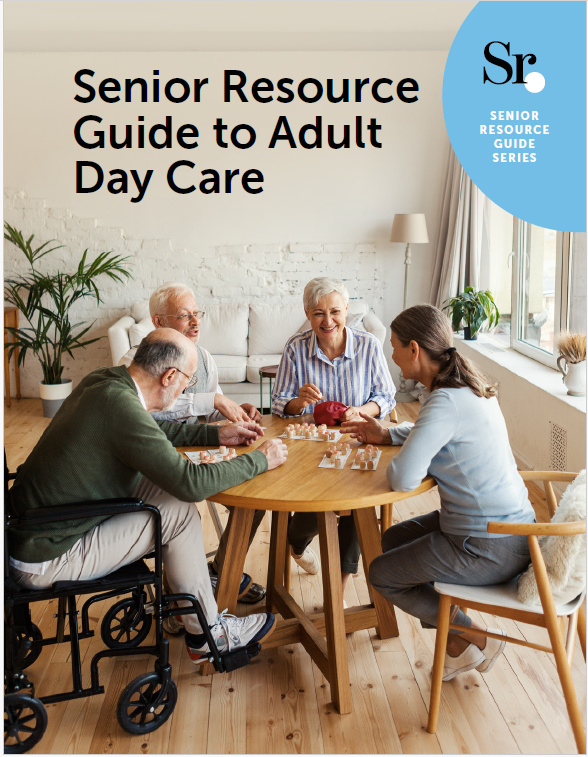Emotional Intimacy and 6 Ways to Feel Closer in Relationships

Chances are, you notice it. Maybe it’s that super-close family who enjoys each other’s company and plans vacations and holidays together. Or maybe it’s that doting grandmother who tenderly sees to the needs of the grandchild she helps raise. Perhaps it’s the neighbor who provides selfless care to his ailing wife. It might be your friend and the way she lights up when she talks about her fiancé. Or, just maybe, all you have to do is glance across the table and meet your spouse’s gaze. A smile crosses your lips. Not only do you know what your spouse is thinking, but you find peace in their presence. That is the product of “emotional intimacy.” But intimacy, on any level, takes work. Read on to learn about the keys to intimacy and ways to strengthen it.
Emotional Intimacy

Emotional intimacy is more than closeness. It’s a bond in which people feel secure and loved. When you’re emotionally intimate with others, you may feel as if you can peer into their soul. Emotional intimacy is knowing another person’s hopes, dreams, fears, and even their shortcomings. Emotionally intimate relationships have depth and fortitude. Emotional intimacy is a key ingredient to braving the storms of life with your treasured loved ones by your side and in your corner.
Ways to Cultivate Emotional Intimacy:
- Be vulnerable.
- Get off auto-pilot and be conscientious and intentional.
- Reminisce together.
- Don’t be afraid of conflict.
- Try to understand their point of view.
Verbal Intimacy

Relationships start with sharing. Time and conversation are the basic recipe for intimacy-building. Research shows that to engage in verbal intimacy, one must exhibit a positive vocal tone, daily self-disclosure, and genuine understanding. Verbal intimacy has been shown to lead to an increase in physical and psychological well-being. Not only does it promote closeness and combat loneliness, but it also prevents depression and improves the overall quality of the relationships. Having a large social network isn’t necessary. Remember—quantity doesn’t necessarily mean quality. One intimate friendship or amorous relationship can be enough to fulfill a person’s verbal intimacy needs. Closeness is key.
Ways to Cultivate Verbal Intimacy:
- Conversing about relational expectations with a loved one
- Expressing private thoughts with a friend
- Communicating when something uplifts or upsets you
- Opening up about your life experiences and conquered difficulties
- Sharing your secret hopes and dreams with a trusted confidante
- Late-night phone calls to your most trusted advisor
Intellectual Intimacy

Simply stated, intellectual intimacy is when you “get” each other. When you have a rich and meaningful meeting of the minds, something magical happens. That special something can be defined as intellectual intimacy. When you can discuss personal ideas or shared interests with another person, you can explore the world together. This promotes creativity, ingenuity, and empathy. By building intellectual intimacy in relationships, you forge new paths for depth and bonding. Feeling intellectually on par with someone accentuates happiness. It’s a contributing factor to that “one mind dwelling in two bodies” feeling.
Ways to Cultivate Intellectual Intimacy:
- Joining a friends or couples book club
- Discussing and even rating a movie after viewing it
- Debating a topic of interest
- Sharing your favorite music or art
- Going to an art gallery or exhibit
- Eating at a never-tried ethnic restaurant
Spiritual Intimacy

You’ve heard the saying, “The family that prays together, stays together.” Spiritual intimacy is critically important in faith-based relationships. Shared or similar beliefs might include a specific religion or a general denomination. Such beliefs reflect and impact one’s values, ethics, and worldview. Lifelong friendships spring from fellowship first experienced at church. Marriages spring from church associations. as well. Spiritual intimacy allows for a deep personal connection on many levels. Spiritual intimacy is often the glue (aka) the “staying power” for marriages that go through hurts, disappointments, and valleys.
Ways to Cultivate Spiritual Intimacy:
- Watching the sunrise or taking a nature walk together
- Reading passages or devotions together before bed
- Going to church services together
- Volunteer or give together
- Participate in a Bible Study together
Experiential Intimacy

“We didn’t realize we were making memories, we just knew we were having fun.” – A. A. Milne
Experiential intimacy is when you enjoy engaging in leisure activities together. Many other forms of intimacy cross over into this form of intimacy. You create experiential intimacy when you reach out to someone to spend time with them while doing something you both enjoy on an emotional, physical, or mental level.
Experiential intimacy is vitally important in every relationship. Shared experiences are a vast well from which to draw. You can spend days or even years reflecting upon enjoyable or funny memories. Experiences have bonding power. It is the very reason that students, coworkers, veterans, and relatives develop friendships that span decades and even lifetimes.
Ways to Cultivate Experiential Intimacy:
- Going to a new restaurant with your spouse
- Planning a baking day with a family member
- Playing a video game with your child
- Trying a new coffee shop with a coworker
- Dressing up and going to an evening event with a friend
Creative Intimacy

Creative intimacy is exactly as it sounds: being creative together. Many times, you don’t know what you have in common with people in developing relationships until you open up and display your creative gifts. By engaging creatively, you embark on a shared experience that can strengthen your connectedness. Creative intimacy comes in a variety of outlets. It doesn’t have to be complicated or expensive. Be silly and try new ideas. It is almost a guarantee that you will come across people who are genuinely surprised and ask, “You too?”
Ways to Cultivate Creative Intimacy:
- Showing a treasured collection to a new friend
- Playing your favorite piano piece for a guest
- Repairing or rebuilding an old car with a parent or child
- Reading a biography with a loved one
- Letting a close friend read a story you have written
Conflict Intimacy

Put simply, conflict intimacy is learning to disagree agreeably. It is a concerted effort on the part of loved ones to clearly understand and respect relational differences and individual beliefs. Conflict intimacy is important because it allows each individual to be their person while preserving and maintaining a healthy relationship. This is where the relational rubber hits the road of life. It needs to be met with forethought and respectful rules of resolution. Conflict intimacy isn’t only applicable to marital or romantic relationships. It applies to every relationship we cherish in life. It is a form of intimacy that is vitally important.
Ways to Resolve Conflict Intimacy:
- Exploring an individual’s differing life and relational goals
- Expressing different religious views and coming to a mutual understanding
- Coming to an agreement on household rules and responsibilities for teens
- Having different political views from your family and honoring each other’s opinions
- Sharing differing philosophies on marital spending and creating an accepted budget
Emotional Intimacy: Worth the Effort

It turns out that emotional intimacy isn’t just something that “happens.” Like most things in life that truly matter, it takes work. Emotional intimacy is being willing to build and continually shore up the relational foundation for the most important people in our lives. It’s creating an atmosphere where we and those we love feel safe, protected, honored, and heard. I think that Victor Hugo, author of The Hunchback of Notre Dame, said it best. “The supreme happiness of life is the conviction that we are loved; loved for ourselves—say rather, loved in spite of ourselves.” ― Victor Hugo
Looking for More?

Looking for more great articles just like this one? Then check out these before you go!
Popular Articles About Retirement Lifestyle
Originally published March 20, 2024








